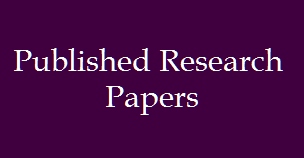
|
|

Statistical Analysis Services for Research Projects employing SPSS and LISREL Applications, By Sourabh Kishore This is the Mobile Friendly Page; please click here for the original page. Please contact us at consulting@eproindia.com or consulting@eproindia.net to discuss your topic or to get ideas about your subject area and our academic help for SPSS statistical modeling and analysis. Statistical Analysis is an integral part of Quantitative Research studies in which all the inputs, indicators and measures are numbers that can be represented in absolute form or in the form of metric units. Statistical techniques can be employed in any form of research that deals with numbers - scientific research, social research, management research, technical research, psychological research, philosophical research, etc. Fundamentally, Statistical Analytics comprises of two types of techniques - Descriptive Statistical Analytics and Inferential Statistical Analytics. The Descriptive Statistical Analytics are carried out within the Research Sample that has been collected by the researcher to represent a large population. The attributes that are analysed in Descriptive Statistical Analytics are: Central Tendency of the Data Set and Dispersion Tendency of the Data Set. The Central Tendency is analysed using the parameters: Mean, Median, Mode and Skewness; and the Dispersion Tendency of the Data Set is analysed using the parameters: Variance, Standard Deviation and Kurtosis. The Descriptive Statistical Analysis can result in excellent reflections from the data sets within the sample but they cannot be readily applied to the entire population. There are two ways to apply the Descriptive Statistical results to the entire population: (a) Grounded Theory Approach: The data is closely matched with past empirical results such that the extent of similarities and differences can be verified and conclusions from the primary data analysis can be drawn. Such an approach is used in Triangulation Methodology which is the mix of Qualitative as well as Quantitative Research methodologies. This approach of applying Descriptive Statistical data on the entire population is employed in scientific as well as phenomenology research techniques and is normally employed in the Interpretive and Realism Philosophical approaches to conducting the research. (b) Inferential Statistical Analytics: The Descriptive Statistical analytics can be applied to the entire population by carrying out additional statistical analytics that are primarily employed to prove or reject Hypotheses. Some of the examples are: Chi-Square test, ANOVA, ACOVA, Regression Tests, Student's T test, etc. The Inferential Statistical analytics are employed in pure quantitative research studies in which all the results are based on statistical analytics only and human interpretations of the textual responses are not employed. These techniques is employed in Positivist's approach of conducting the research. In scientific research studies, the input data can be obtained from experiments conducted in laboratories or from simulation outcomes. In management and social research studies, the input data can be obtained from the output of Likert Scale which is normally embedded as the part of Structured Questionnaire. Likert Scale can be employed for Triangulation methodology as well as Quantitative methodology. Some qualitative researchers also prefer to use Likert scale to enhance their interpretations of the results but they do not conduct statistical analysis of the outcomes. We can help you to conduct both Descriptive and Inferential statistical analysis for your Research Project. The process followed is the following: (a) You may send us your primary research data in whatever form you have collected - in hard copies (scanned), in MS Word tables or in MS Excel sheets. (b) We will organise the data in a separate MS Excel sheet in such a way that it can be readily imported into SPSS or LISREL. If there are any errors in the primary data, we will help you to rectify them. (c) We will help you to import data in the SPSS or LISREL package on your computer (you will need to have a licensed copy of SPSS or LISREL Academic version on your computer) and will help you to generate the results in tables as well as graphs. Please note that LISREL is for validating multivariate structural constructs through factor analysis and structural equation modeling. (d) We will conduct an analysis of the data and write the report which will be sent to you. If you want us to analyse the data with respect to the Literature Review carried out by you, we can do so at additional costs. The cost of our efforts will depend upon the sample size and the corresponding data volumes that needs to be organised in MS Excel and then imported into SPSS on your computer for descriptive and inferential statistical analysis and LISREL for multivariate statistical analysis. The cost will also depend upon whether you only want descriptive statistical analysis (mostly used in "Triangulation" or "Mixed" methodology) or want to conduct inferential statistical analysis as well (mostly used in "Pure Quantitative" methodology, i.e., research studies that require proving or rejecting hypotheses). For grounded theory approach (comparing the primary data and its statistical analytics with past empirical theories) and for writing up the entire report, the charges shall be extra based on the number of words required by the customer. We can also evolve the conclusions and generalisations based on our analysis and present to you our opinion in the write up. You may however like to confirm yourself if our opinion justifies your research aims and objectives. We will take accountability of the accuracy of all analytics and the conclusions drawn but the final success will depend upon whether your research aims and objectives have been met or not. Copyright 2020 - 2026 EPRO INDIA. All Rights Reserved |
Please contact us at consulting@eproindia.com or consulting@eproindia.net to discuss your topic or to get ideas about your subject area and our academic help for SPSS statistical modeling and analysis |